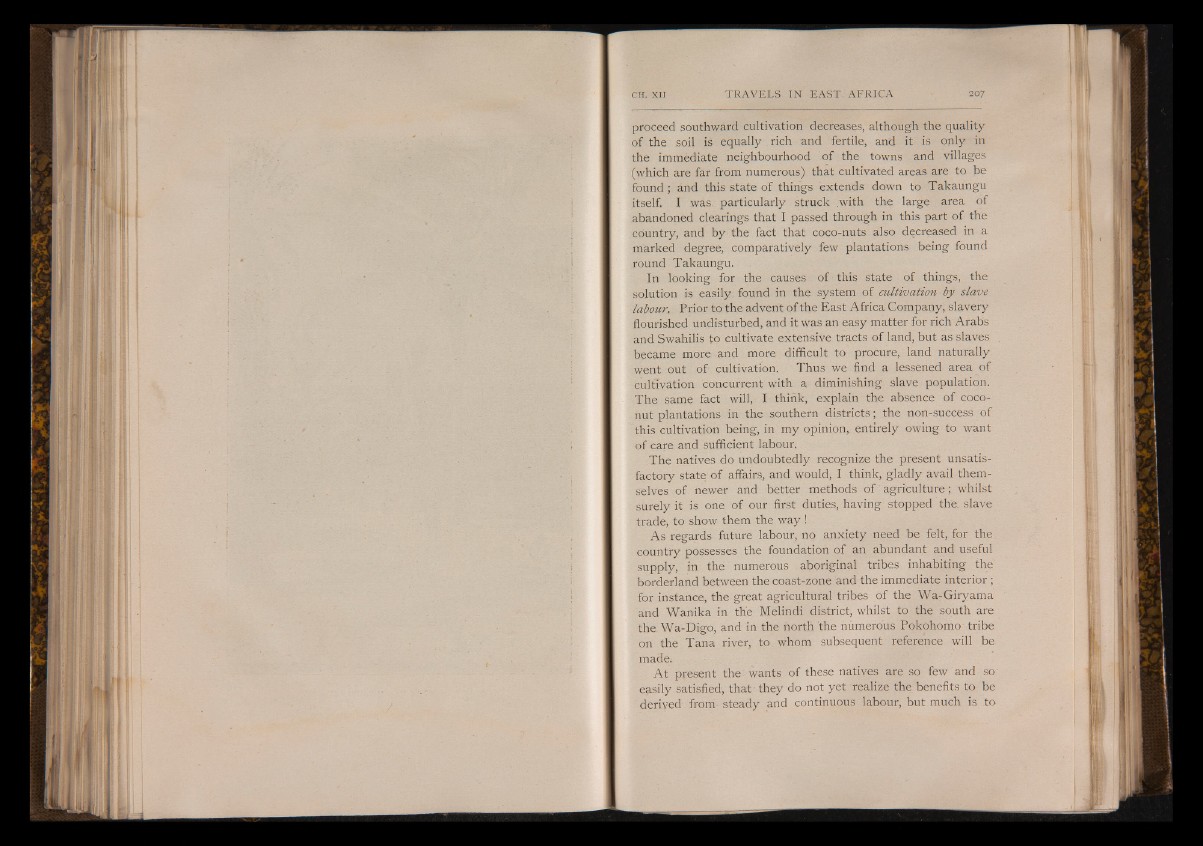
rnp*
IlfS
proceed southward cultivation decreases, although the quality
of the soil is equally rich and fertile, and it is only in
the immediate neighbourhood of the towns and villages
(which are far from numerous) that cultivated areas are to be
found; and this state of things extends down to Takaungu
itself. I was, particularly struck .with the large area of
abandoned clearings that I passed through in this part of the
country, and by the fact that coco-nuts also decreased in a
marked degree, comparatively few plantations being found
round Takaungu.
In looking for the causes of this state of things, the
solution is easily, found in the system of cultivation by slave
labour. Prior to the advent of the East Africa Company, slavery
flourished undisturbed, and it was an easy matter for rich Arabs
and Swahilis to cultivate extensive tracts of land, but as slaves
became more and more difficult to procure, land naturally
went out of cultivation. Thus we find a lessened area of
cultivation concurrent with a diminishing slave population.
The same fact will, I think, explain the absence of coconut
plantations in the southern districts; the non-success of
this cultivation being, in my opinion, entirely owing to want
of care and sufficient labour.
The natives do undoubtedly recognize the present unsatisfactory
state of affairs, and would, I think, gladly avail themselves
of newer and better methods of agriculture; whilst
surely it is one of our first duties, having stopped the. slave
trade, to show them the way !
As regards future labour, no anxiety need be felt, for the
country possesses the foundation of an abundant and useful
supply, in the numerous aboriginal tribes inhabiting the
borderland between the coast-zone and the immediate interior ;
for instance, the great agricultural tribes of the Wa-Giryama
and Wanika in the Melindi district, whilst to the south are
the Wa-Digo, and in the north the numerous Pokohomo' tribe
on the Tana river, to whom subsequent reference will be
made.
At present the wants of these natives are so few and so
easily satisfied, that- they do not yet realize the benefits to be
derived from-steady and continuous labour, but much is .to